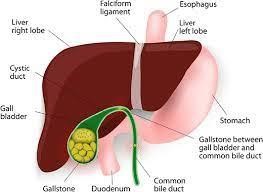A nurse is caring for a client who is 3 days postoperative following a T4 spinal cord injury.
Select 1 condition and 1 client finding to fill in each blank in the following sentence.</p>
The client is at risk for developing
The Correct Answer is {"dropdown-group-1":"D","dropdown-group-2":"B"}
Completed Sentence: The client is at risk for developing hemorrhagic stroke due to autonomic dysreflexia. Rationale: Hemorrhagic Stroke: This is a serious condition that can occur as a complication of a high spinal cord injury. Due to the injury at T4, the client may be at risk for blood pressure dysregulation, which can lead to a hemorrhagic stroke. Autonomic Dysreflexia: This condition is characterized by a sudden increase in blood pressure, often triggered by stimuli such as a full bladder, bowel distention, or pain. In this client, the headache rated 9/10, diaphoresis, flushed skin, agitation, labored breathing, and elevated blood pressure (185/105 mm Hg) are indicative of autonomic dysreflexia.
Nursing Test Bank
Naxlex Comprehensive Predictor Exams
Related Questions
Correct Answer is D
Explanation
Choice A reason
Re-evaluate the client for an ET cuff leak is not appropriate. While an ET cuff leak could contribute to respiratory distress, the immediate concern is the high-pressure alarm, which indicates increased resistance to airflow. The nurse should address the alarm first and then assess for other potential causes, including an ET cuff leak.
Choice B reason:
Option B: Assess for disconnected tubing is not appropriate. A disconnected tubing is also a potential cause of the high-pressure alarm. However, before checking for disconnected tubing, the nurse should first deliver manual breaths with a resuscitation bag to provide the client with adequate ventilation.
Choice C reason:
Decrease the ventilator flow rate is not appropriate. Decreasing the ventilator flow rate might not be the appropriate action in this situation, as the high-pressure alarm indicates increased resistance, which might require increased flow to overcome. Additionally, the nurse should not delay taking immediate action by adjusting ventilator settings without knowing the specific cause of the high-pressure alarm.
Choice D reason:
When the high-pressure alarm is beeping, and the client is experiencing respiratory distress, it indicates that there is an increased resistance to airflow within the ventilator circuit or the client's airway. This can be a life-threatening situation, and immediate action is required.
Correct Answer is A
Explanation
Choice A reason:
Acetaminophen is a safer choice for pain relief in clients with cholelithiasis because it does not have significant effects on the gallbladder or biliary system. It can provide effective pain relief without exacerbating the underlying condition.
Choice B reason:
Omeprazole Omeprazole should not administer because it is a proton pump inhibitor (PPI) used to reduce stomach acid production and treat conditions such as gastroesophageal reflux disease (GERD) and peptic ulcers. It is not indicated for the treatment of pain and discomfort associated with cholelithiasis.
Choice C reason
Should not be administered
Metoclopramide Metoclopramide should not be administered because it is a medication used to treat gastrointestinal issues such as nausea, vomiting, and gastroparesis. It is not indicated for the treatment of pain associated with cholelithiasis.
Choice D reason:
Ketorolac Ketorolac should not be administered because it is an NSAID used for moderate to severe pain. However, it should be avoided in clients with cholelithiasis due to its potential adverse effects on the gallbladder and biliary system.

Whether you are a student looking to ace your exams or a practicing nurse seeking to enhance your expertise , our nursing education contents will empower you with the confidence and competence to make a difference in the lives of patients and become a respected leader in the healthcare field.
Visit Naxlex, invest in your future and unlock endless possibilities with our unparalleled nursing education contents today
Report Wrong Answer on the Current Question
Do you disagree with the answer? If yes, what is your expected answer? Explain.
Kindly be descriptive with the issue you are facing.
